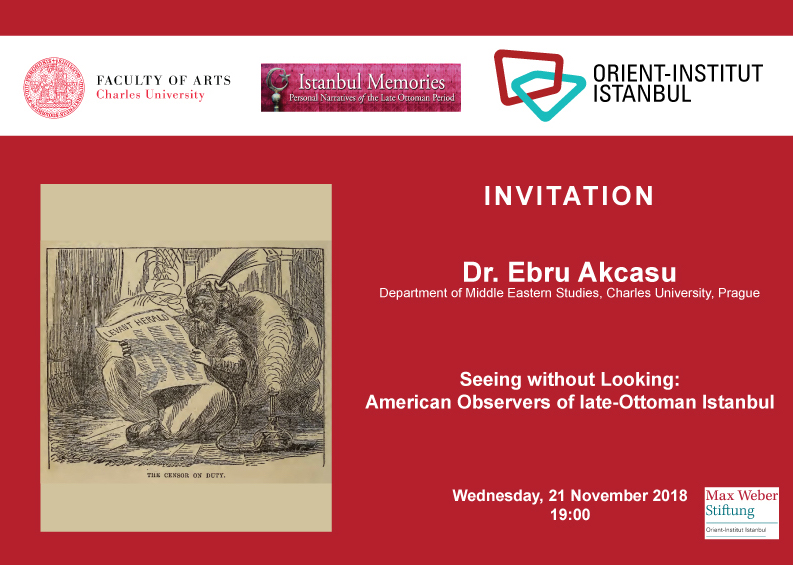November, 2018
21nov19:0021:00Dr. Ebru AkcasuSeeing without Looking: American Observers of late-Ottoman Istanbul
Details
Foreigners are often regarded as representatives, symbols, and extensions of the states they owe their natural-born allegiances to. It follows that their
Details

Foreigners are often regarded as representatives, symbols, and extensions of the states they owe their natural-born allegiances to. It follows that their home state’s competitiveness in host lands has the effect of magnifying or diminishing the associated individual or group’s visibility. Starting from this premise, this paper evaluates the visibility(ies) of foreigners in late-Ottoman Istanbul so far as these can be observed in two American impressions of the capital. Both were composed in the latter half of the nineteenth century as travel accounts, written for an impressionable audience with little first-hand knowledge of the Ottoman capital. The works are evaluated for the extent to which they perpetuate contemporaneous international power dynamics through rhetorical devices.
Ebru Akcasu is an Ottomanist whose research focuses on nation, migration, and identity formation in the late-nineteenth and early twentieth centuries. She received her PhD in Languages and Cultures of the Near and Middle East at SOAS, University of London (2017). Ebru Akcasu is a faculty member at the Department of Middle Eastern Studies at Charles University, Prague, where she teaches undergraduate and graduate courses on Ottoman and Turkish history and literature; she is currently a visiting researcher at the Orient-Institut Istanbul, where she is working on an article and turning her PhD into a monograph.
Zeit
(Mittwoch) 19:00 - 21:00
Ort
Orient-Institut Istanbul
Susam Sokak No:16 Kat:3 Daire: 7 Cihangir - İstanbul
